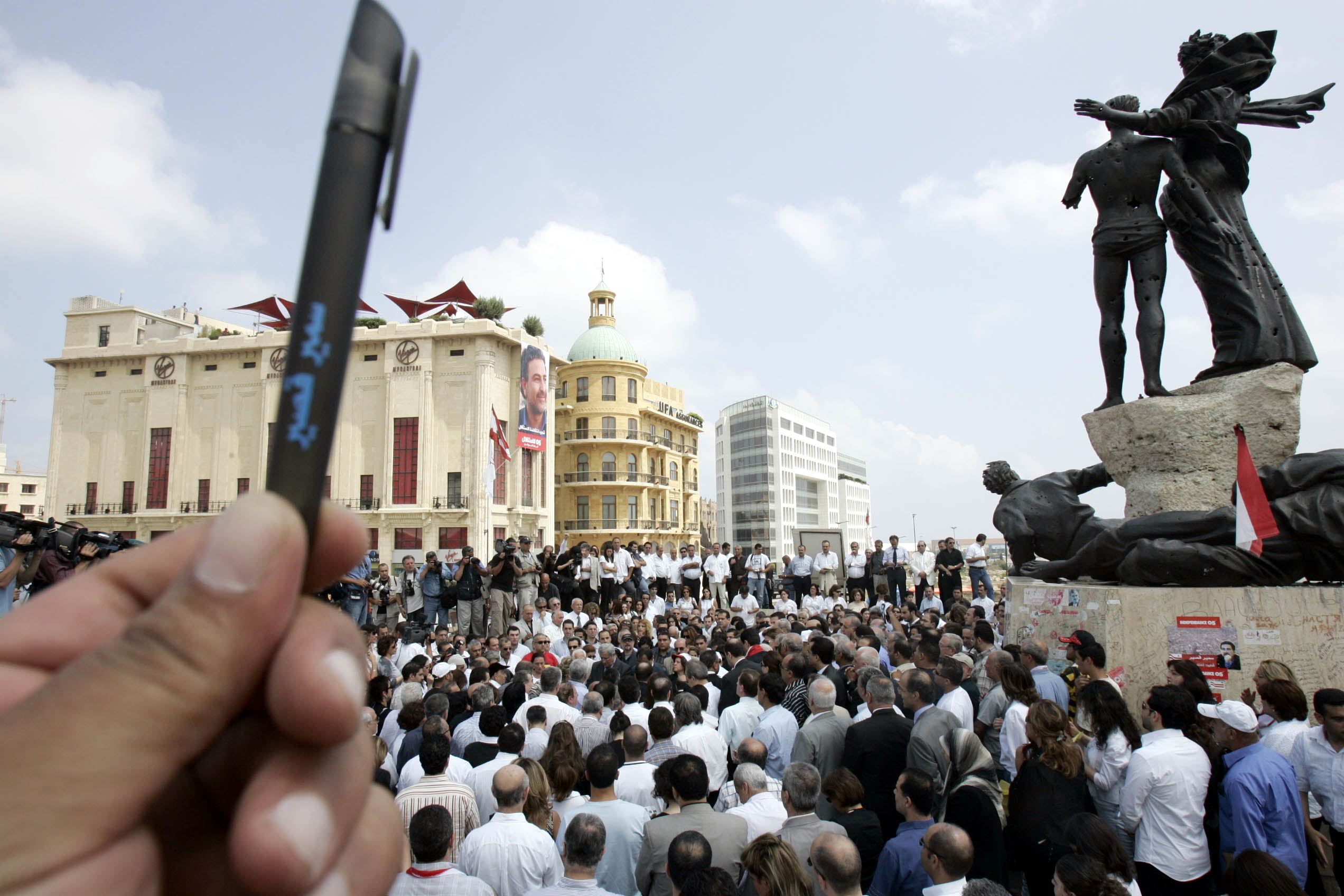
martyrs square in Beirut.
Hanna Anbar
Freedom, freedom, freedom
This is a word so loosely used in this part of the world, particularly in Lebanon, where the pursuit of freedoms has cost the lives of so many members of the press. Since the turn of the 20th century and the dreaded Ottoman Empire, all the way to the past two decades, the cream of Lebanese journalists have paid the price whether through hangings or assassinations with bullets, poison, explosions etc.
These martyrs have left a legacy that inspired the new generation to grab the mantle and continue the fight, in order to make the sacrifices of those writers have meaning.
I would like to give two examples of personal impact: the assassination of the gifted Kamel Mroue in 1966 at the hands of a thug from the Egyptians intelligence services, which had significant influence at the time over Lebanese politics; and the killing of the charismatic young man Gebran Tueni, who made a monumental difference across Lebanon’s intellectual and political landscape.
Kamel Mroue, then-publisher of the Arabic-language newspaper Al-Hayat, a man of purpose, decided to publish the English-language newspaper The Daily Star in 1952, This was a time when Europe and the West still recovering from World War II, and just four years after the creation of Israel which resulted in the displacement of thousands of Palestinians, who as refugees scattered in camps around the neighboring countries, a tragedy that continues to this day.
The emergence of The Daily Star filled a void in regrads to information pertaining to the tragedy that befell the Palestinians, and the paper, along with Al-Hayat became a beacon of freedom that graduated hundreds of brilliant young journalists.
During those turbulent times, defending core values and principles in Lebanon was bound to upset one of the powers, and in the case of Mroue the price was his life. Those bullets, however, couldn’t silence the voice of freedom of Al-Hayat and The Daily Star, both of which reached the pinnacle of journalism initially under the stewardship of Mroue’s extraordinary wife Salma and later his son Jamil, who remained true to the legacy.
My other example is the very promising young Gebran, who under the guidance of the exceptional Ghassan Tueni, then-publisher of An-Nahar, remade the paper alongside the advances in technology. With the country under Syrian occupation at the time, Gebran’s fiery writing against that occupation became a rallying cry that inspired thousands to take to the streets, to say no and to demand freedom.
Naturally, that was not well received by those in power, whose only response to calls for freedom was more killing, making Gebran yet another martyr in the quest for this country’s true independence alongside some of Lebanon’s top politicians, particularly Rafik Hariri.
Of course, we must not forget the assassination of Samir Kassir, another writer, analyst and rare luminary who sought to shine light where shadows festered.
Freedom must reign, and freedom of the press should be upheld relentlessly by the new generations. It’s a legacy and a heritage that has already been founded with the blood of icons, and we must strive to prove ourselves worthy of the price paid by so many for us to persevere.
To end on an emotional word, every effort to muzzle your voice of freedom will fail, because like love, freedom will always find a way.

